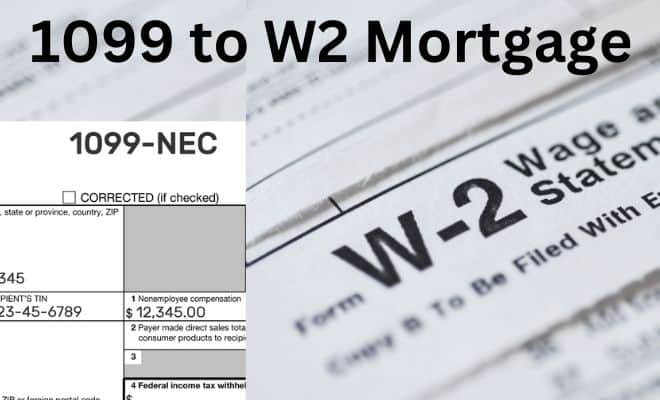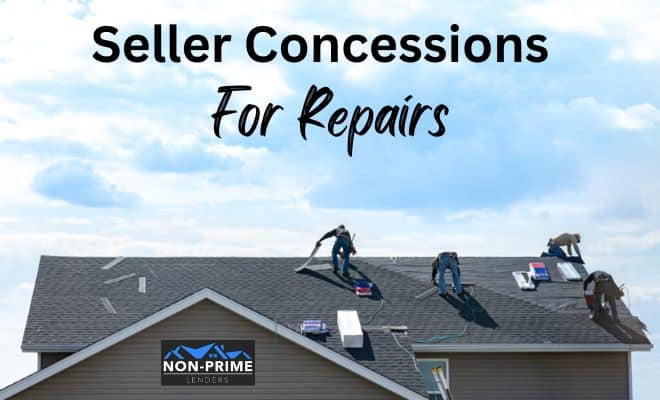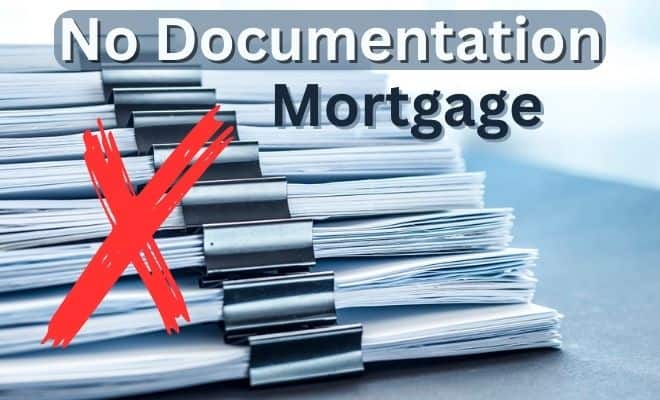Mortgage for Self Employed Less Than One Year
Obtaining a mortgage as a self-employed individual with less than one year of experience can be challenging. Lenders may be hesitant due to perceived risk. However, it is absolutely possible.
To increase approval chances, it is recommended to improve credit history, save more for a down payment, accumulate substantial reserves, and work with a specialized loan officer.
There are lenders who offer mortgages for individuals who have been self employed for less than one year without having to provide tax returns or verify business income.
Mortgage Options for Self-Employed Individuals Less than One Year
As a self-employed individual, it is important to understand the various mortgage options available to you. Being self-employed comes with both benefits and challenges when it comes to obtaining a mortgage.
Benefits and Challenges of Self-Employment
Self-employment offers flexibility, the ability to be your own boss, and potentially higher income potential. However, it can also present challenges when it comes to mortgage approval. Lenders may view self-employed individuals as having higher risk due to inconsistent income or having limited work history.
The other challenge is most self employed individuals write off everything on their tax returns and do not show enough income to qualify for a mortgage.
Mortgage Options for Self-Employed Borrowers with Less Than One Year of Experience
If you have less than one year of self-employment experience, there are still mortgage options available to you. While some lenders may have stricter requirements, others specialize in working with self-employed borrowers in similar situations.
It’s important to look for lenders who understand the unique needs of self-employed individuals with limited work history. They can offer more flexible loan programs designed for borrowers like you.
Some mortgage options for self-employed borrowers with less than one year of experience include:
- Bank Statement Loans: These loans use your personal or business bank statements to verify income instead of traditional tax returns. They allow you to demonstrate your earning capacity even with limited work history. Read more about bank statement loans.
- Stated Income Loans: These are loans that do not require bank statements and instead, you will state what your business is making on an annual basis without having to document proof of that income. Read more about stated income loans.
- Non-Qualified Mortgage (Non-QM) Loans: Non-QM loans cater to borrowers who don’t meet traditional mortgage standards. These loans may be a viable option for self-employed individuals with limited work history.
By exploring these mortgage options and working with lenders experienced in serving self-employed borrowers, you can increase your chances of obtaining a mortgage even with less than one year of experience.
Click to speak with someone or to get a quote
Documentation and Income Verification
When applying for a mortgage as a self-employed individual with less than one year of experience, providing the necessary documentation and verifying your income is crucial. Lenders want to ensure that you have a stable income source to support your mortgage payments. In this section, we will explore two methods of income verification: providing bank statements as an alternative and using tax returns and profit-loss statements.
Providing Bank Statements as Alternative Income Verification
For self-employed borrowers with less than one year of experience, it may be challenging to provide traditional income documentation such as tax returns. In such cases, providing bank statements can be an alternative method of income verification. These statements can demonstrate your regular business income deposits and showcase your ability to manage your finances responsibly.
When submitting bank statements, lenders are looking for your average monthly deposits to determine eligibility. Additionally, maintaining separate personal and business accounts can further strengthen your case for approval. You can use our bank statement loan calculator to get an idea of how much you could qualify for.
Profit-Loss Statements Instead of Tax Returns
Another way to qualify without submitting tax returns is to provide a P&L that was generated by your accountant. Profit-loss statements can provide additional insights into your business’s profitability and stability. Make sure to accurately report your income and consult with a tax professional to maximize your chances of approval.
Remember, providing accurate and complete documentation will help provide for a smooth mortgage application process. By organizing your financial records and working with an experienced loan officer, you can increase your chances of securing a mortgage despite having less than one year of self-employment experience.
Saving for a Down Payment and Closing Costs
When it comes to securing a mortgage as a self-employed individual with less than one year of experience, saving for a down payment and covering closing costs are two major steps in the process. Thee few mortgage programs available to you will require a larger down payment and higher credit scores than what conventional and FHA loans require. If you are in a good cash position, it improves your chances for approval.
Here, we will explore strategies to save for a down payment and understand the closing costs specific to self-employed borrowers.
Understanding Closing Costs for Self-Employed Borrowers
Closing costs are the fees and expenses associated with finalizing a mortgage. For self-employed borrowers here are some key points to consider:
- Appraisal fees: Lenders typically require an appraisal to determine the value of the property, and you may be responsible for covering this cost.
- Loan origination fees: This fee covers the lender’s administrative costs for processing the loan and can vary depending on the lender. You can expect these fees to be up to 2.75% of the loan amount.
- Attorney or title fees: These costs are associated with legal documentation and title searches to ensure a smooth transfer of property ownership.
- Insurance premiums: You will also need to pay for homeowners insurance one year in advance.
- Escrow fees: These fees cover the escrow agent’s services who holds and disburses funds during the mortgage process.
- Other miscellaneous costs: Additional expenses can include credit report fees, survey fees, and government recording fees.
Understanding the potential closing costs will help you budget accordingly and avoid any surprises during the mortgage process.
Lenders who Offer Mortgages for Self Employed Less than One Year
When navigating the mortgage process as a self-employed individual with less than one year of experience, you will need to work with lenders and mortgage professionals who specialize in serving self-employed borrowers.
Finding Lenders Specializing in Self-Employed Mortgages
Start by researching lenders with extensive experience in handling mortgages for self-employed individuals. Look for lenders who understand the unique challenges and requirements of self-employment and offer tailored mortgage solutions. Allow us to match you with the best lender for your situation.
1 – Dream Home Financing Contact
2 – Impac Mortgage Contact
3 – Lima One Contact
4 – New American Funding Contact
5 – Hurst Lending Contact
6 – Stratton Equities Contact
7 – Fidelity Home Group Contact
8 – Oceanfirst Bank Contact
We can help you to find the right lender here
Collaborating with a Knowledgeable Loan Officer
Not all loan officers have extensive experience in dealing with borrowers who have been self employed for less than one year. Some loan officers claim to have the ability to help with your mortgage, but if they are not truly experienced here, it could be costly for you.
Your loan officer will be your main point of contact throughout the mortgage process. They will help you gather the necessary documentation, explain the requirements, and provide insights into the best mortgage options for your specific situation.
Effective collaboration with a loan officer can greatly increase your chances of securing a mortgage as a self-employed individual with less than one year of experience.
Find a loan officer who can help here
Tips for Increasing Approval Chances
When it comes to securing a mortgage as a self-employed individual with less than one year of experience, there are several tips that can help improve your chances of approval. By implementing these strategies, you can demonstrate your creditworthiness and financial stability to lenders.
Making a Larger Down Payment
One way to enhance your approval chances is by making a larger down payment. When you are not documenting income with tax returns and have a very small time in which your business has been open, a larger down payment improves your chances for approval. Additionally, a larger down payment can potentially help you secure a lower interest rate and decrease the overall cost of your mortgage.
Credit Scores
Aside from having a larger down payment, your credit scores will be the other determining factor in whether you will be approved. Some of these creative mortgage programs have minimum credit score requirements that will be higher than what you could get with a conventional or FHA loan.
Your credit scores will also help to determine the rate you will be offered by the lender. This is no different than any other mortgage program on the market. If you have poor credit, the loan options for you will be extremely limited.
The Bottom Line
Securing a mortgage as a self-employed individual with less than one year of experience can be challenging but not impossible. By following the right steps and working with the right professionals, you can increase your chances of approval.
Final Thoughts on Securing a Mortgage as a Self-Employed Individual with Less Than One Year of Experience
1. Build a strong financial profile by managing personal and business finances separately. This will help lenders assess your creditworthiness accurately.
2. Improve your credit score and history by making timely payments and reducing existing debts. A favorable credit profile can positively impact your mortgage application.
3. Provide documentation such as bank statements and tax returns to verify your income. These documents will demonstrate your ability to repay the mortgage.
4. Save for a larger down payment to lower your loan-to-value ratio. This can increase your chances of approval and potentially lead to better loan terms.
5. Work with lenders who specialize in mortgages for self-employed individuals. They understand the unique challenges you face and can offer suitable loan options.
6. Collaborate with a knowledgeable loan officer who can guide you through the mortgage application process and help you navigate any complexities specific to self-employment.
7. Factors such as your debt-to-income ratio, employment history, and stability will influence your mortgage approval. Maintain a healthy balance between your debt and income to enhance your eligibility.
8. Explore alternative mortgage programs such as FHA loans or financing options for non-warrantable condos, depending on your specific circumstances.
9. By making a larger down payment and demonstrating consistent income as a self-employed individual, you can increase your chances of approval.
- Keep in mind that each lender may have different requirements and criteria for self-employed borrowers with less than one year of experience. Research and compare multiple lenders to find the best fit for your needs.
- It is advisable to consult with a qualified mortgage professional who can guide you through the process and provide personalized advice based on your specific situation.
- Remember, securing a mortgage requires patience and diligence, especially for self-employed individuals with less than one year of experience. Stay focused on improving your financial profile and working with the right professionals to achieve your homeownership goals.
With these tips in mind, you can increase your chances of obtaining a mortgage as a self-employed individual with less than one year of experience. Start taking the necessary steps today to secure your dream home!





